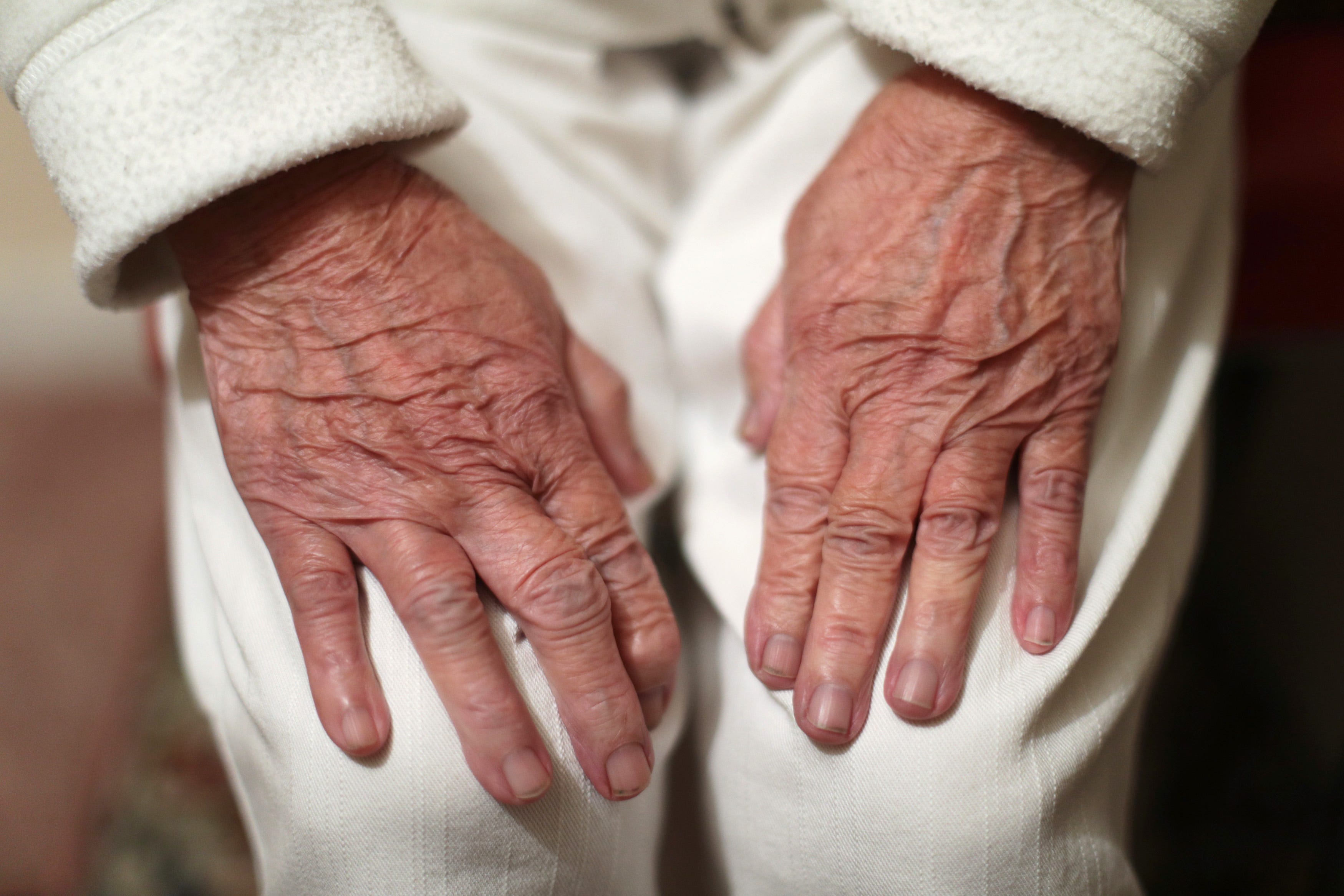Major study reveals how long people with dementia live after diagnosis
Roughly 13% of people move to a nursing home in the year after diagnosis

Your support helps us to tell the story
From reproductive rights to climate change to Big Tech, The Independent is on the ground when the story is developing. Whether it's investigating the financials of Elon Musk's pro-Trump PAC or producing our latest documentary, 'The A Word', which shines a light on the American women fighting for reproductive rights, we know how important it is to parse out the facts from the messaging.
At such a critical moment in US history, we need reporters on the ground. Your donation allows us to keep sending journalists to speak to both sides of the story.
The Independent is trusted by Americans across the entire political spectrum. And unlike many other quality news outlets, we choose not to lock Americans out of our reporting and analysis with paywalls. We believe quality journalism should be available to everyone, paid for by those who can afford it.
Your support makes all the difference.Medics have revealed how long a person can expect to live after a dementia diagnosis.
Various factors appear to contribute to life expectancy after diagnosis, with age playing a key part.
Survival rates range between two and nine years on average, the study suggests.
The study also explored how long people could expect to live at home before moving to a nursing home.
Researchers examined all studies between 1984 and 2024 which reported on survival or nursing home admission for people with dementia.
A total of 235 studies reported on survival among more than 5.5 million people and 79 studies reported on nursing home admission among 352,990 people.
Experts led by academics from Erasmus MC University Medical Centre in the Netherlands found that average survival after diagnosis was “strongly dependent on age”.
Men diagnosed aged 65 could expect to survive for 5.7 years, while those diagnosed when they were 85 could expect 2.2 years.

Women diagnosed at 65 could expect to live up to 8.9 years while those at 85 years could expect 4.5 years.
However, the researchers found that overall, women had shorter survival after diagnosis compared with men because women tend to be diagnosed later in life.
People with Alzheimer’s disease appeared to survive for 1.4 years longer than those with other forms of dementia.
The researchers also found differences over the continents with people in Asia expected to live 1.4 years longer after a diagnosis than those in Europe or the US.
The average time before a patient moved to a nursing home after diagnosis was 3.3 years.
Some 13% of people moved to a nursing home in the year after their diagnosis.
This increased to 57% after five years.
“About one third of remaining life expectancy was lived in nursing homes, with more than half of people moving to a nursing home within five years after a dementia diagnosis,” the authors wrote in the BMJ.
Dr Alex Osborne, policy manager at Alzheimer’s Society, said: “While this research about life expectancy when living with dementia may be upsetting to read, it’s also a reminder of the vital importance of dementia diagnosis.
“Getting a diagnosis has a wide range of benefits, unlocking access to vital care, support and treatment and helping people to live well for longer.
“But right now, a third of people living with dementia in England don’t have a diagnosis at all. This needs to change.
“Alzheimer’s Society is calling on governments and health systems to set bold and ambitious new diagnosis rate targets to increase diagnosis rates, invest in the tools and workforce needed to diagnose more people, and take steps to address the postcode lottery in diagnosis across the country.”
Health and Social Care Secretary Wes Streeting has faced criticism in recent days for not giving a hard deadline for his plans to create a National Care Service aimed at tackling the massive costs of social care.
An independent commission is expected to begin exploring the future of the service in the spring, but its timeline means proposals for the long-term funding and major reform of social care in England may not be delivered until 2028.
Mr Streeting defended the long-term nature of his plans on Tuesday, telling LBC radio that consensus with other political parties is needed because “politics has torpedoed good ideas” in the past.
Sir Andrew Dilnot, an economist who was the architect of the original plans for a care costs cap more than a decade ago, told MPs on Wednesday that it is “blindingly… bleedin’ obvious” that adult social care reform must be addressed.
He told the House of Commons Health and Social Care Committee that three years for the newly announced commission on social care to produce a final report is “an inappropriate length of time”.
Join our commenting forum
Join thought-provoking conversations, follow other Independent readers and see their replies
Comments